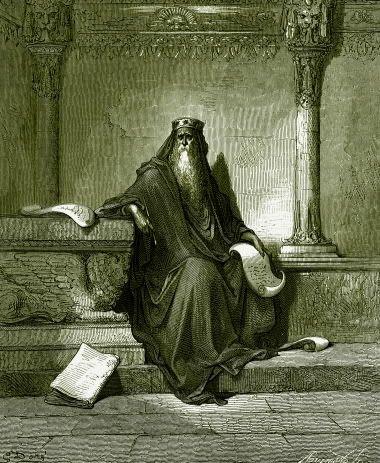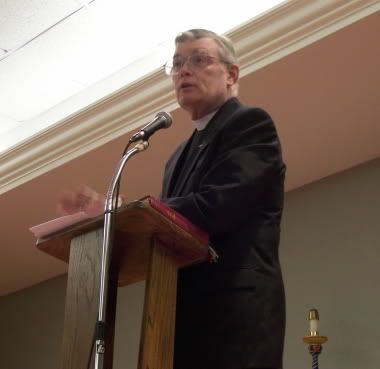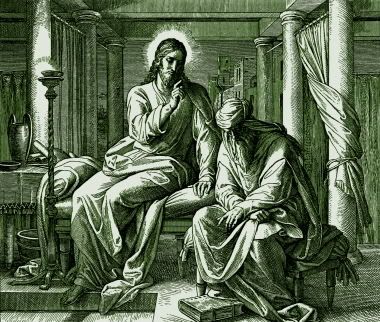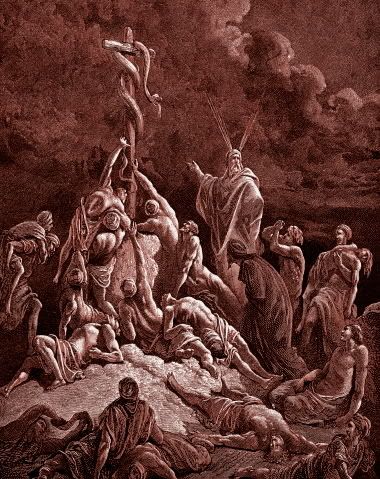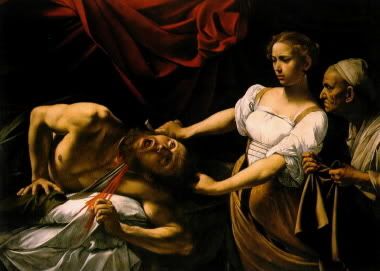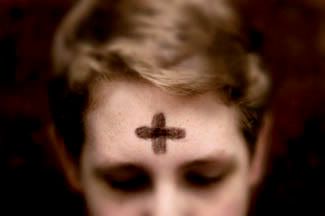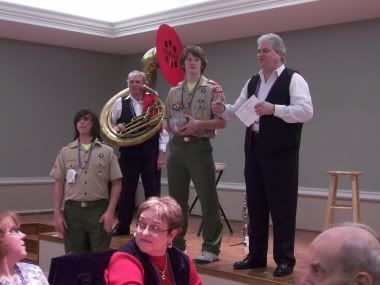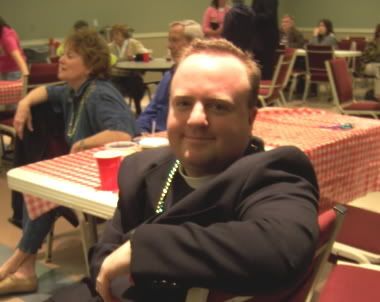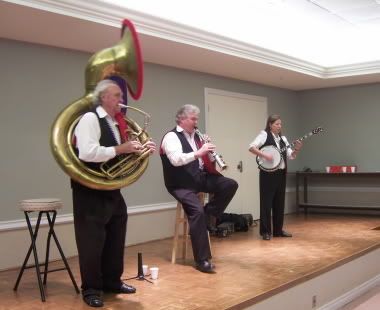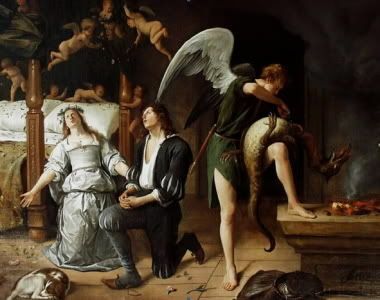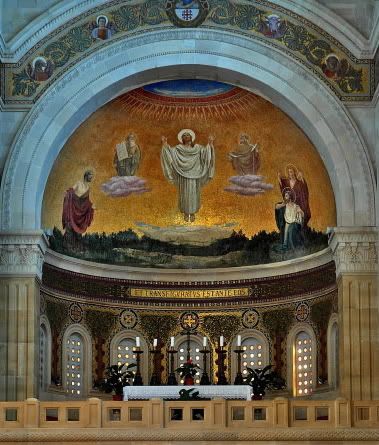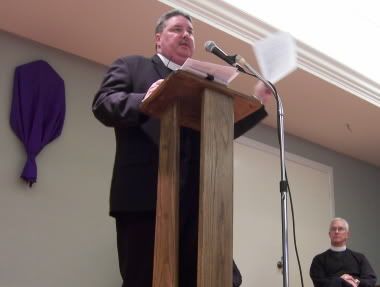
Last November, the Diocese of Fort Worth voted to amend the diocesan constitution, removing reference to the Episcopal Church, to allow itself to realign with another province of the Anglican Communion. The Anglican Province of the Southern Cone (in South America) has extended an invitation to dioceses in the United States and Canada to seek safe harbor under its jurisdiction. These constitutional changes will need to be ratified at the next annual convention to take effect.
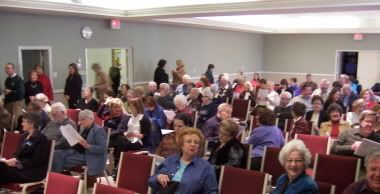
Now that we are in the midst of this year of discernment, our Rector has invited guests to speak at St Alban's to help us better understand some of the issues involved. Fr Fred Barber of Trinity Episcopal Church in Fort Worth spoke at our first forum on 17 February in favor of remaining with the Episcopal Church. Canon Charles Hough, Fr Thomas Hightower, and diocesan vice-chancellor Rickey Brantley spoke at our second forum on 24 February in favor of realignment. Click here to listen to part one of this forum with Canon Hough. Click here to listen to part two of this forum with Fr Hightower, Rickey Brantley, and a brief question-and-answer session with the speakers.
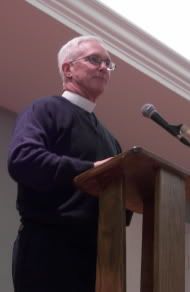
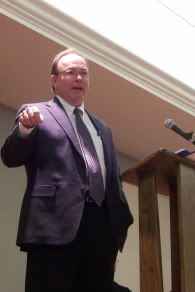
A number of handouts were available at this presentation. Among them were Canon Heidt's response to Fr Woodward in the essay "Religions in Collision", available here. Also available was the responses to questions from a forum at St Stephen's in Hurst, available here. A handout of a timeline of changes in teaching and practice called "The Path of the Episcopal Church" was available, and that has been printed below.
Also, Canon Hough mentioned two other essays from "the other side" which are available on the internet and worth reading. One was the four-part essay "Undermining the Episcopal Church" by Fr Thomas B. Woodward. You can read it here: Part 1: Who is Drifting from Biblical Truth, Part 2: Blasting Away at the Bedrock, Part 3: A Case of Spiritual Adultery, and Part 4: Replacing Christ with a Code. The other essay was "Changing the Church" by Dr Louie Crew. You can find it here.
The Path of the Episcopal Church
Here are chronicled the events and their dates leading up to the "Walking Apart" of the US branch of the Anglican Communion from the main body of both the Communion and the "one, holy, catholic and apostolic church".
The Timeline
1965-1966 Heresy charges brought against Bishop James Pike, who had declared that "the Church's classical way of stating what is represented by the doctrine of the Trinity is... not essential to the Christian faith"; Bishop Pike was censured, but there was no trial for heresy because the Church believed such a trial would give it an "oppressive image".
1967 Weakening position on abortion appears to begin with 1967 General Convention Statement on Abortion.
1968 Membership in the Episcopal Church peaks; by 2005 there is a net loss of around one million members.
1974 Irregular ordination of women to the priesthood, "The Philadelphia Eleven".
1976 General Convention of ECUSA approved Resolutions A068 and B101 calling for study/dialog on sexuality and ordination of homosexuals.
1976 John Spong ordained Bishop of Newark, despite his denial of essential Christian doctrines.
1979 General Convention of ECUSA approved Resolution A053, reaffirming traditional teaching on sexuality and morality, stating, "we believe it is not appropriate for this Church to ordain a practicing homosexual, or any person who is engaged in heterosexual relations outside of marriage." This has never been overturned by subsequent General Conventions.
1979 Twenty bishops issued "Statement of Conscience," rejecting A053.
1987 Panel of bishops dismisses heresy charges against Bishop Spong.
1988 General Convention of ECUSA approves Resolution D102 calling for the continuation of consultation/dialog regarding human sexuality.
1989 Panel of bishops dismisses heresy charges against Bishop Spong.
1989 Bishop John Spong, Diocese of Newark, publicly ordains first non-celibate, openly-partnered, homosexual.
1990 Bishop Walter Righter, assisting in the Diocese of Newark, ordains a non-celibate homosexual deacon.
1991 Bishop Ronald Haines, Diocese of Washington (D.C.), ordains a non-celibate homosexual priest.
1991 During General Convention, the House of Bishops rejects efforts to censure Bishop Righter and Bishop Haines for the ordinations they performed.
1994 General Convention of ECUSA approved Resolution C042 calling for preparation of a report considering rites for blessings of same-sex unions.
1994 Bishop Spong drafted the "Koinonia Statement" defining homosexuality as morally neutral and affirming support for the ordination of homosexuals in faithful sexual relationships (signed by 90 bishops and 144 deputies). See also Spong's 12 Theses.
1996 Both counts of heresy against Bishop Righter dismissed in an ecclesiastical court, which said there was "no clear doctrine" regarding the ordination a non-celibate gay man.
1997 The Kuala Lumpur Statement is released by the Second Anglican Encounter in the South, upholding traditional theology on human sexuality. At General Convention, Resolution B032 to endorse the Kuala Lumpur Statement was defeated in the House of Bishops 94 to 42.
1998 Lambeth Conference upholds Scriptural and traditional teaching on marriage and human sexuality in resolution 1.10. Showing their dissent for resolution 1.10, 65 ECUSA bishops sign a pastoral statement to lesbian and gay Anglicans.
March 2000 Primates' meeting in Oporto, Portugal, issued pastoral letter upholding the authority of Scripture.
July 2000 General Convention of ECUSA approved Resolution D039 acknowledging relationships other than marriage and existence of disagreement on the Church's teaching.
March 2001 Primates' meeting in Kanuga, N.C., issued pastoral letter acknowledging estrangement in Church due to changes in theology and practice regarding human sexuality, and calling Communion to avoid actions that might damage "credibility of mission."
April 2002 Primates' meeting at Canterbury issued a report recognizing the responsibility for all bishops to be able to articulate the fundamentals of faith so as to maintain the Church in truth.
September 2002 Anglican Consultative Council Meeting in Hong Kong approved motion urging dioceses and bishops to refrain from unilateral actions/policies that would strain communion.
March 2003 The Theology Committee of the House of Bishops concluded that: "Because at this time we are nowhere near consensus in the Church regarding the blessing of homosexual relationships, we cannot recommend authorizing the development of new rites for such blessings. For these reasons, we urge the greatest caution as the Church continues to seek the mind of Christ in these matters."
May 2003 Primates' meeting in Brazil issued pastoral letter stating "The Archbishop of Canterbury spoke for us all when he said that it is through liturgy that we express what we believe, and that there is no theological consensus about same sex unions. Therefore, we as a body cannot support the authorization of such rites."
July 2003 In a letter to the Primates, the Archbishop of Canterbury warns that "certain decisions" on human sexuality could have "the effect of deepening the divide between Provinces."
July 2003 A gathering of over 60 worldwide Anglican leaders warns the General Convention of the Episcopal Church of the USA that, "should the Convention decide to confirm the election of Canon Gene Robinson as bishop or approve the blessing of same-sex unions or both, then we will convene within three months to confirm our view that ECUSA has thereby placed itself outside the boundaries of the Anglican Communion and that appropriate action will follow."
August 2003 The General Convention of the Episcopal Church defeated Resolution B001, which sought to affirm the authority of Scripture.
August 2003 The General Convention of the Episcopal Church voted to confirm Gene Robinson, a non-celibate, partnered homosexual man, as bishop of New Hampshire. The Archbishop of Canterbury responds, saying, "It is my hope that the church in America and the rest of the Anglican Communion will have the opportunity to consider this development before significant and irrevocable decisions are made in response," and calls for an extraordinary meeting of the primates in London during October.
August 2003 The General Convention of the Episcopal Church approved Resolution C051 recognizing blessings of same-sex unions as "within bounds of our common life."
October 2003 Nearly 3,000 orthodox Episcopalians met in Dallas at A Place to Stand, hosted by Christ Church, Plano TX and received message of support from Cardinal Ratzinger (soon to be Pope Benedict XVI).
October 2003 The statement released by the Primates of the Anglican Communion at the conclusion of their extraordinary meeting in Lambeth Palace states, in part, "If his consecration proceeds, we recognize that we have reached a crucial and critical point in the life of the Anglican Communion and we have had to conclude that the future of the Communion itself will be put in jeopardy. In this case, the ministry of this one bishop will not be recognized by most of the Anglican world, and many provinces are likely to consider themselves to be out of Communion with the Episcopal Church (USA). This will tear the fabric of our Communion at its deepest level, and may lead to further division on this and further issues as provinces have to decide in consequence whether they can remain in communion with provinces that choose not to break communion with the Episcopal Church "
November 2003 V. Gene Robinson is consecrated Bishop of New Hampshire. Presiding Bishop Griswold (who signed the primates' statement in London) is chief consecrator. The Archbishop of Canterbury issues a statement.
January 2004 The Anglican Communion Network is launched.
March 2004 Diocese of Washington begins to develop rites for blessing same-sex unions.
April 2004 Retired Bishop Otis Charles "marries" his homosexual partner in Pasadena, Calif. (The two have five previous marriages between them.)
May 2004 Bishop of Los Angeles, J. Jon Bruno, performs blessing of same-sex union.
June 2004 Bishop of Washington, D.C., John Chane, performs blessing of same-sex union for priest and his partner.
June 2004 Diocese of Vermont issues proposed rites for blessings of same-sex unions.
The Windsor Report and beyond
October 2004 Lambeth Commission releases the Windsor Report, reaffirming Lambeth Conference resolution 1.10 and the authority of Scripture as central to Anglican common life, and calls for moratoria on public rites of same-sex blessings as well as on the election and consent of any candidate to the episcopacy living in a same-sex union.
February 2005 Primates meet in Dromantine, Ireland, to collectively examine the Windsor Report and produce a Communique calling on ECUSA and Canada to "voluntarily withdraw" their representatives from the Anglican Consultative Council (ACC) until Lambeth 2008. Additionally the Primates requested a hearing at the June 2005 ACC meeting in which the two suspended churches (US & Canada) are to set out their thinking behind their recent actions.
March 2005 ECUSA House of Bishops meeting at Camp Allen, Texas, responding to the Windsor Report request for a moratorium on election and consent to the episcopacy of persons living in same-sex unions, instead "pledge(s) to withhold consent to the consecration of any person elected to the episcopate after the date hereof until the General Convention of 2006." (In other words, "If I can't play my way, I'm not going to play at all, so there!").
June 2005 At the Anglican Consultative Council meeting in Nottingham, England, ECUSA makes a presentation, "To Set Our Hope on Christ," defending what amounts to a new gospel that is wholly incompatible with Scripture, thereby justifying rather than repenting of their actions. The ACC meeting also upholds Lambeth 1.10 teaching on human sexuality and endorses the Primates' request for ECUSA and Canada to withdraw their representatives from the ACC until the next Lambeth Conference.
October 2005 In its communique The Third Anglican South-to-South Encounter in Egypt issued a harsh indictment of ECUSA and Canada and called for a common "Anglican Covenant" among churches remaining true to Biblical Christianity and historic Anglicanism.
February 2006 Global South Primates Steering Committee issues a communique reemphasizing the seriousness of the crisis within the Communion and the need for ECUSA to repent and comply with the Windsor Report.
June 2006 The General Convention of the Episcopal Church met in Columbus, Ohio. The GC response to the Windsor Report amounts to rejection and repudiation; it also elects a Presiding Bishop that is fully committed to the path chosen by the Episcopal Church on issues of sex and morality. Eight dioceses request some form of alternative primatial relationship.
Beyond General Convention 2006
September 2006 The Global South Primates meeting at Kilgali, Rwanda, issue a communique that laments, "We deeply regret that, at its most recent General Convention, The Episcopal Church gave no clear embrace of the minimal recommendations of the Windsor Report." but "We are, however, greatly encouraged by the continued faithfulness of the Network Dioceses and all of the other congregations and communities of faithful Anglicans in North America." and "We are convinced that the time has now come to take initial steps towards the formation of what will be recognized as a separate ecclesiastical structure of the Anglican Communion in the USA."
October 2006 The Presiding Bishop's chancellor, David Beers, writes letters threatening legal action against the dioceses of Fort Worth and Quincy.
November 2006 In an escalating environment of threats and persecution, Bishop Schofield of San Joaquin, pulls no punches in his response to the new Presiding Bishop, saying, in part, "The Episcopal Church, as an institution, is walking a path of apostasy and those faithful to God's Word are forced to make painful choices."
December 2006 Nine Virginia congregations, including Truro and the Falls Church (two largest in the Diocese) vote to leave the Episcopal Church. This brings the total number of congregations that have left the Episcopal Diocese of Virginia to 15.
January 2007 Diocese of Virginia press release announces lawsuits against 11 of the 15 departing congregations, continuing the scorched earth policy against dissidents apparently being orchestrated by the national church's New York headquarters.
February 2007 At the Primates Meeting in Dar Es Salaam, Tanzania, 14-19 February, a communique was released from the primates of the Anglican Communion. The thrust of the communique is that it provides a short deadline, till September 30,2007, for The Episcopal Church's House of Bishops confirm back to the Primates, that "the bishops will not authorize any Rite of Blessing for same-sex unions in their dioceses or through General Convention," and "that the passing of Resolution 803 3 of the 75th General Convention means that a candidate for episcopal orders living in a same-sex union shall not receive the necessary consent. "If the reassurances requested of the House of Bishops cannot in good conscience be given, the relationship between The Episcopal Church and the Anglican Communion as a whole remains damaged at best, and this has consequences for the full participation of the Church in the life of the Communion. Also, to "respond pastorally and provide for those groups alienated by recent developments in the Episcopal Church, the Primates will establish a Pastoral Council to act on behalf of the Primates in consultation with The Episcopal Church. This Council shall consist of up to five members: two nominated by the Primates, two by the Presiding Bishop, and a Primate of a Province of the Anglican Communion nominated by the Archbishop of Canterbury to chair the Council."
March 2007 The House of Bishops of The Episcopal Church reject the Dar es Salaam communique - request urgent meeting with the Archbishop of Canterbury/Primates Standing Committee. Meeting at Camp Allen, Navasota, Texas, March 16-21, at the end of their deliberations on March 20, the House of Bishops issued strong rejections of the requests contained in the communique in a Mind of the House Resolution addressed to the Executive Council, a Letter to the Archbishop of Canterbury and members of the Primates Standing Committee, and a Public Statement from the House of Bishops.

